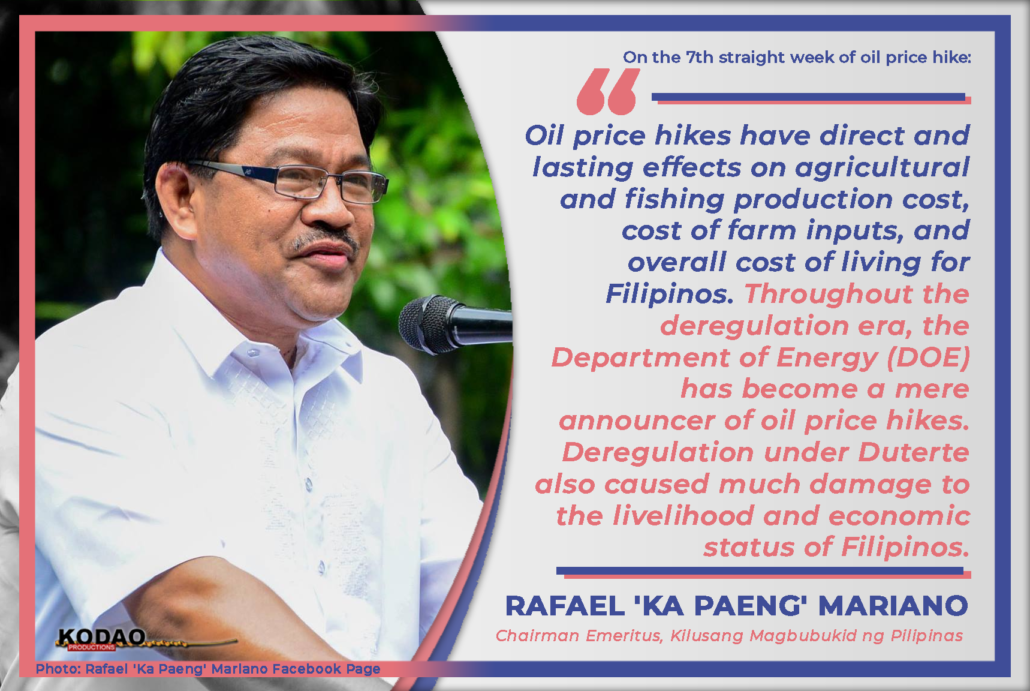On the release of the November 2018 inflation rate, research group IBON said that prices are still high and rising even with the reported slowdown.
This remains a burden on poor families trying to live off low and precarious incomes. Substantial and longer-term solutions are still needed, said the group.
Headline inflation slowed to 6.0 percent in November from 6.7 percent last month.
Inflation slowed in food and non-alcoholic beverages; housing, water, electricity, gas, and other fuels; and communication.
Inflation however worsened in the rest of the commodity groups. Additionally, year-on-year inflation is still double the 3.0 percent rate in November 2017.
IBON stressed that prices are still higher than before due to the inflationary impact of the Tax Reform for Acceleration and Inclusion’s (TRAIN) consumption taxes, rising global oil prices and the peso depreciation.
Rice, fish, meats, fruits, vegetables and other basic commodities are still more expensive now than a year ago.
The majority of Filipino families who have low incomes are burdened the most. Inflation has eroded the incomes of the poorest 60 percent households by a total of Php2,650 to as much as Php7,000 from January to November of this year.
The Php537 minimum wage in the National Capital Region is the highest nationwide but even this falls far short of the estimated family living wage of Php1,002 for a family of five.
Meanwhile, some 2.5 million of the target 10 million beneficiaries of TRAIN’s unconditional cash transfers (UCT) have still not received anything almost a year into TRAIN.
The Duterte administration’s economic managers said that slowing inflation “suggests” the effectiveness of government’s anti-inflationary measures such as Administrative Order No. 13 removing barriers to agricultural imports.
IBON executive director Sonny Africa disputes this: “The government is too quick to take credit and too dishonest to accept blame.”
“The inflation slowdown may even be due more to falling global oil prices since October than the Duterte administration’s half-hearted anti-inflation measures,” he said. “On the other hand, government refuses to accept how the higher taxes from TRAIN have driven prices up and will do so again in less than a month.”
Africa said that government’s decision to push through with the next tranche of fuel excise taxes next month in January 2019 shows its insensitivity to the plight of millions of poor Filipinos.
He said that real steps to curb inflation begin with stopping TRAIN, and giving meaningful support to domestic agriculture and Filipino industry. #

